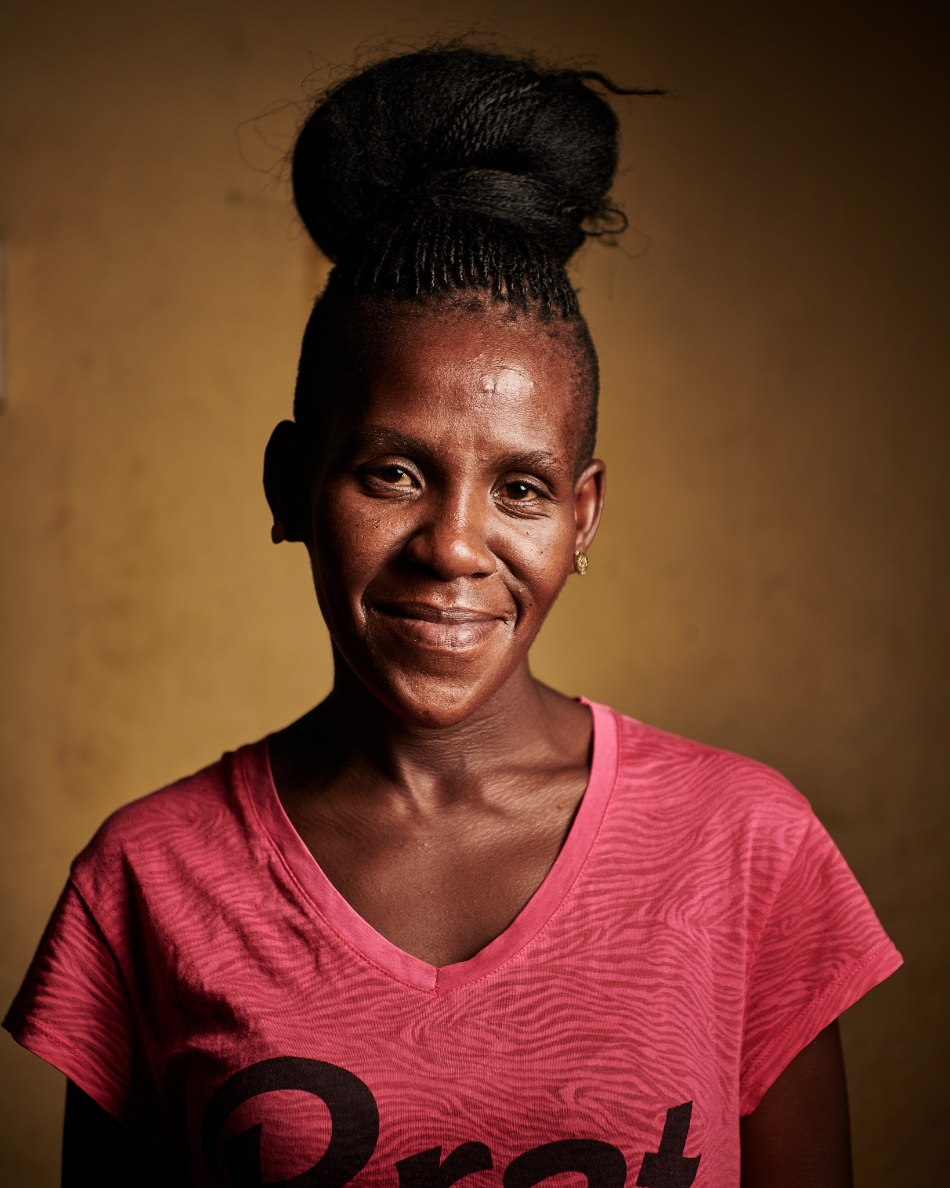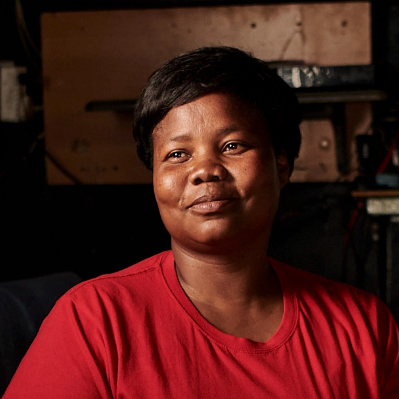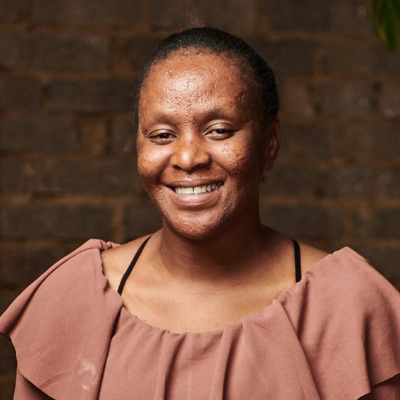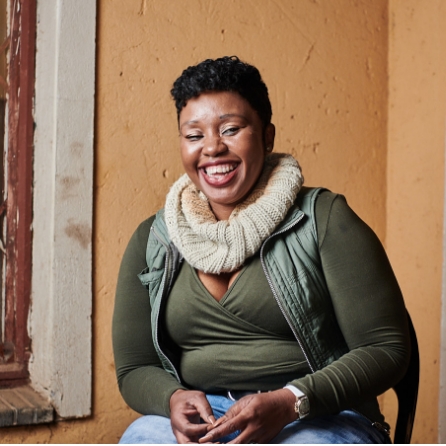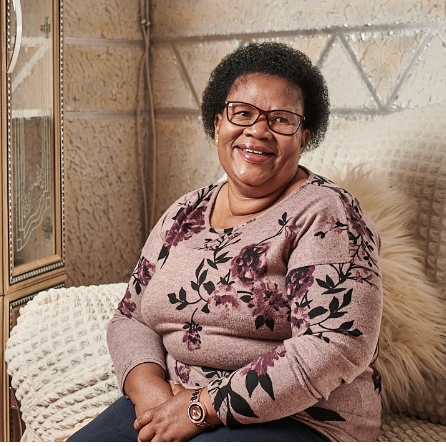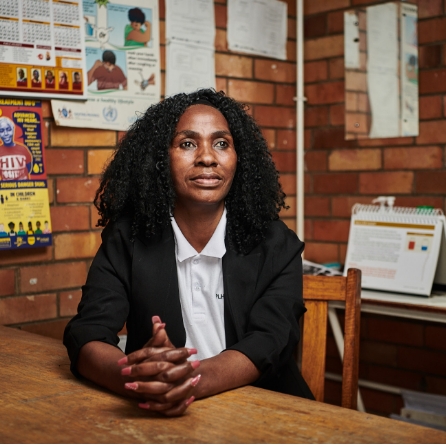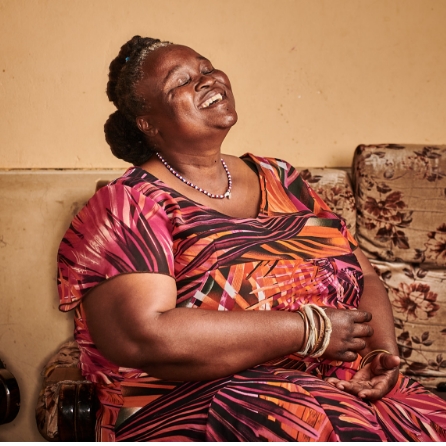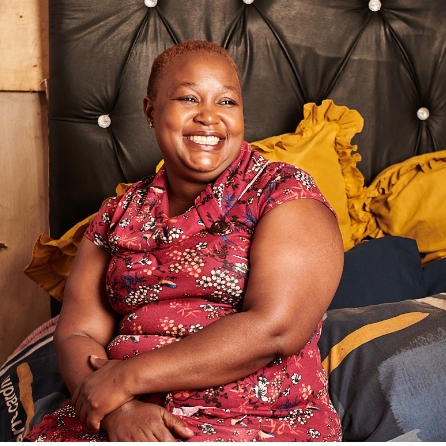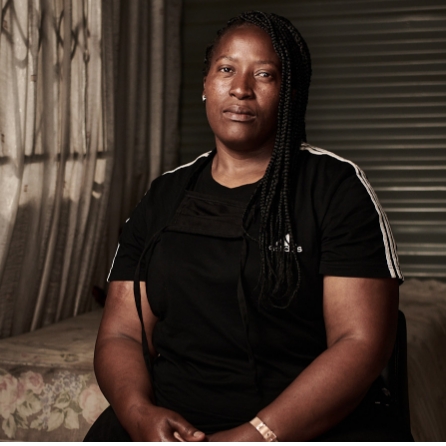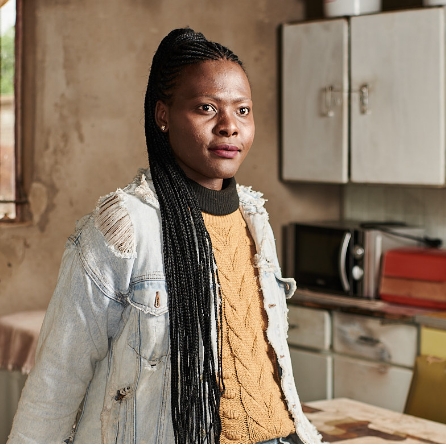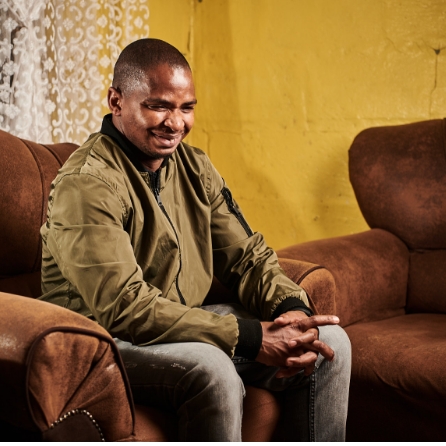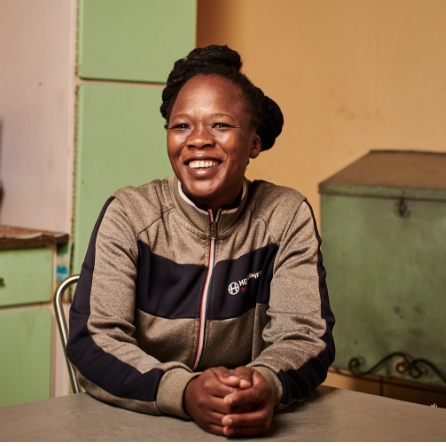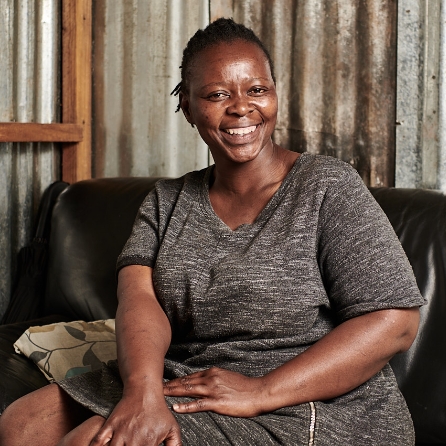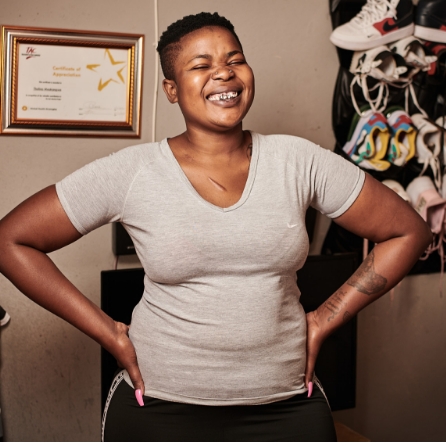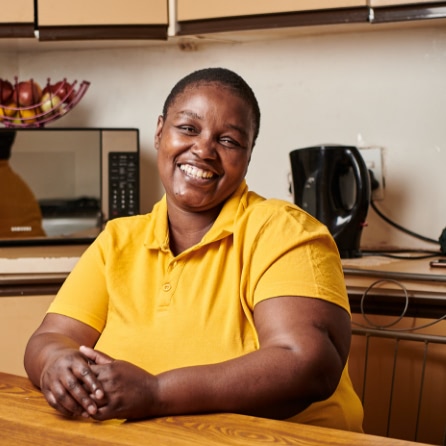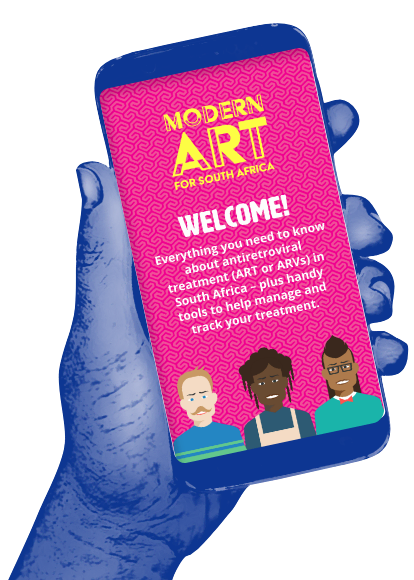Nonkululeko Tsagae, 34, Everton West, Sebideng
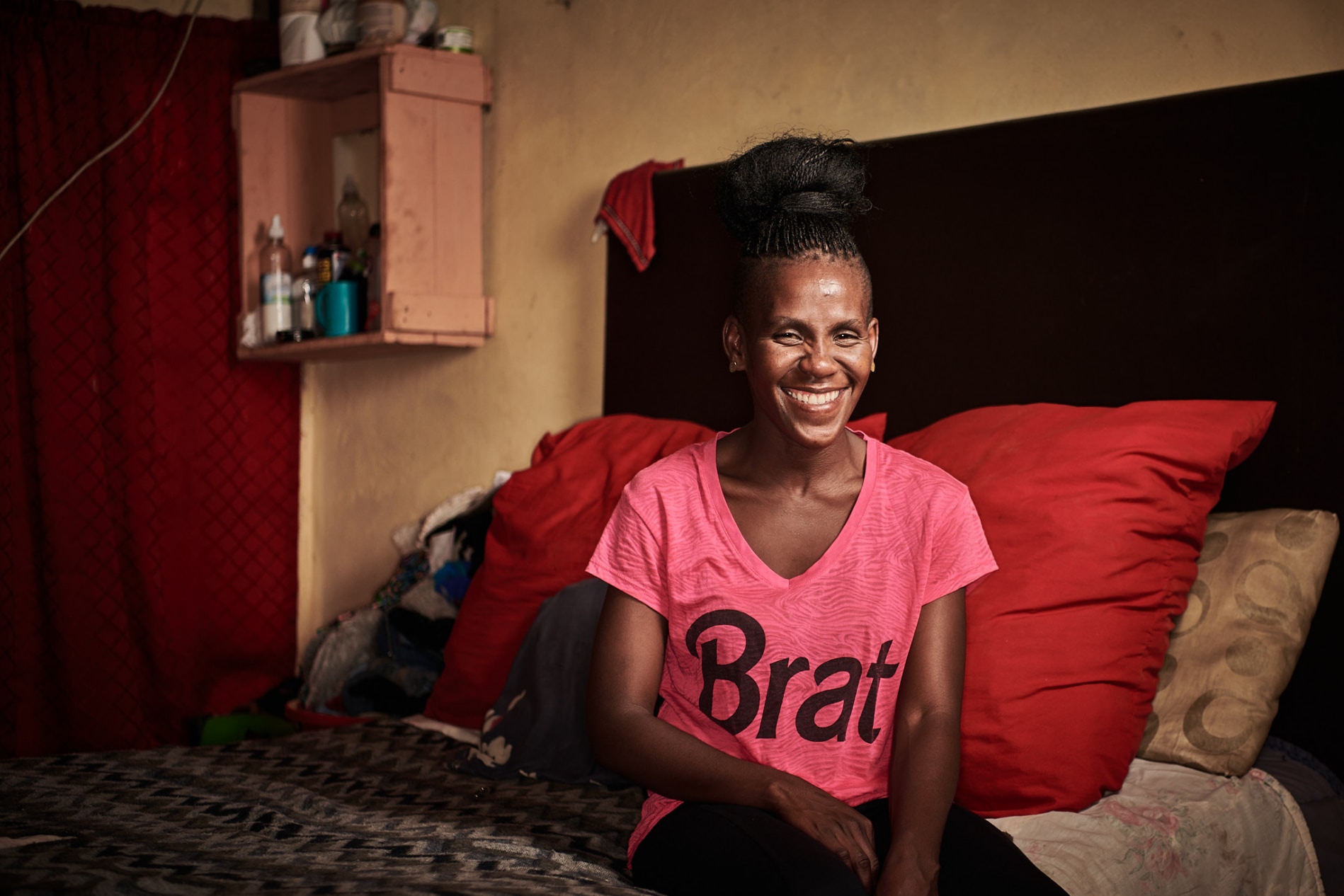 Nonkululeko Tsagae is an active member of her community in Sedibeng. Accompanying people to the clinic to get their medication is one of her most important roles as it helps to combat the stigma and judgment from clinic staff and other members of the public. "If someone wants to have a child and they are HIV positive I would say go for it…if you want kids, have kids because they will be negative.”
Nonkululeko Tsagae is an active member of her community in Sedibeng. Accompanying people to the clinic to get their medication is one of her most important roles as it helps to combat the stigma and judgment from clinic staff and other members of the public. "If someone wants to have a child and they are HIV positive I would say go for it…if you want kids, have kids because they will be negative.” Nonkululeko started on ARVs in 2011 when she was pregnant with her first daughter, who was born prematurely. She was three months pregnant when she started on her medication. She was sceptical about whether her baby would be negative and was worried that if she breastfed her baby she would put her at risk.
Both of her children are HIV-free.
It crossed her mind a couple of times that she might be giving birth to a baby with HIV, but with the support of her mum, she decided that it was worth going ahead with the pregnancy. She says that even if she did give birth to a child with HIV they would still have a normal life because they will also be on ARVs.
Nonkululeko has been on dolutegravir for over a year. Since she changed everything has been good. She has had no side effects. She says that she has always had a normal life and, even though she is living with HIV, she just needs to adjust to a slightly different way of doing things. Most importantly she needs to remember to take her medication.
On the issue of stopping treatment, she says that people may not take their medication because they are afraid of the attitude of the nurses at the clinic. Her advice is to take someone with you, for support. She sees that as her role in the community, to accompany people to the clinic for their ARVs.
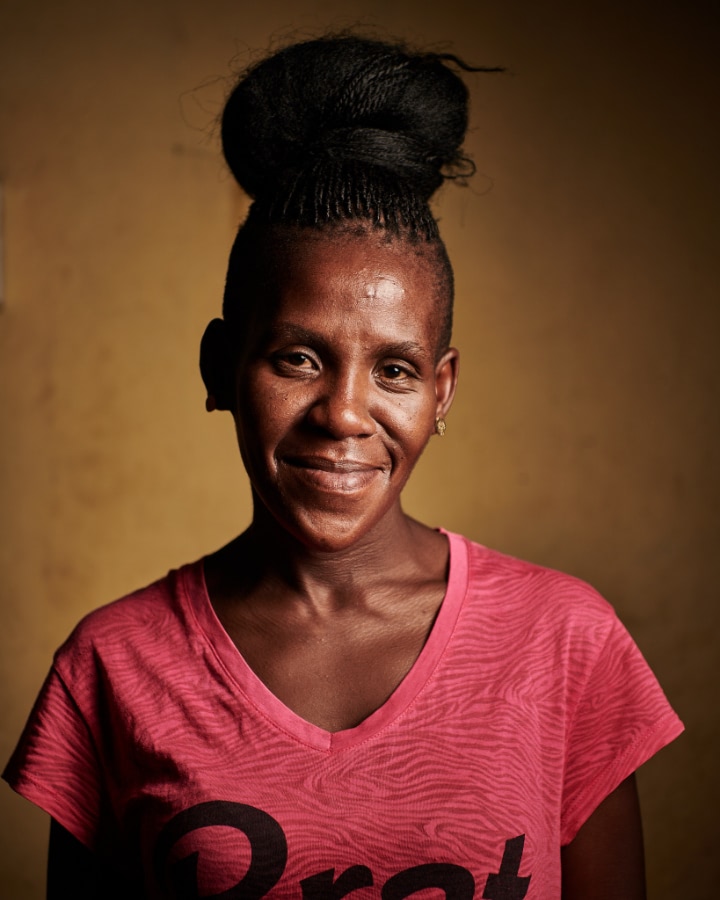 Nonkululeko Tsagae is an active member of her community in Sedibeng. Accompanying people to the clinic to get their medication is one of her most important roles as it helps to combat the stigma and judgment from clinic staff and other members of the public. i
Nonkululeko Tsagae is an active member of her community in Sedibeng. Accompanying people to the clinic to get their medication is one of her most important roles as it helps to combat the stigma and judgment from clinic staff and other members of the public. i
Nonkululeko Tsagae, 34, Everton West, Sebideng
Nonkululeko started on ARVs in 2011 when she was pregnant with her first daughter, who was born prematurely. She was three months pregnant when she started on her medication. She was sceptical about whether her baby would be negative and was worried that if she breastfed her baby she would put her at risk.
Both of her children are HIV-free.
It crossed her mind a couple of times that she might be giving birth to a baby with HIV, but with the support of her mum, she decided that it was worth going ahead with the pregnancy. She says that even if she did give birth to a child with HIV they would still have a normal life because they will also be on ARVs.
“If someone wants to have a child and they are HIV positive I would say go for it…if you want kids, have kids because they will be negative.”
Nonkululeko has been on dolutegravir for over a year. Since she changed everything has been good. She has had no side effects. She says that she has always had a normal life and, even though she is living with HIV, she just needs to adjust to a slightly different way of doing things. Most importantly she needs to remember to take her medication.

“The only competition I have is with a negative person because now I have to do much more than them because they are not sick.”
On the issue of stopping treatment, she says that people may not take their medication because they are afraid of the attitude of the nurses at the clinic. Her advice is to take someone with you, for support. She sees that as her role in the community, to accompany people to the clinic for their ARVs.
“I always have packets of my pills everywhere and I leave them where I usually go and stay just so I don’t have to carry them around. I know when I am there, I have them.”
